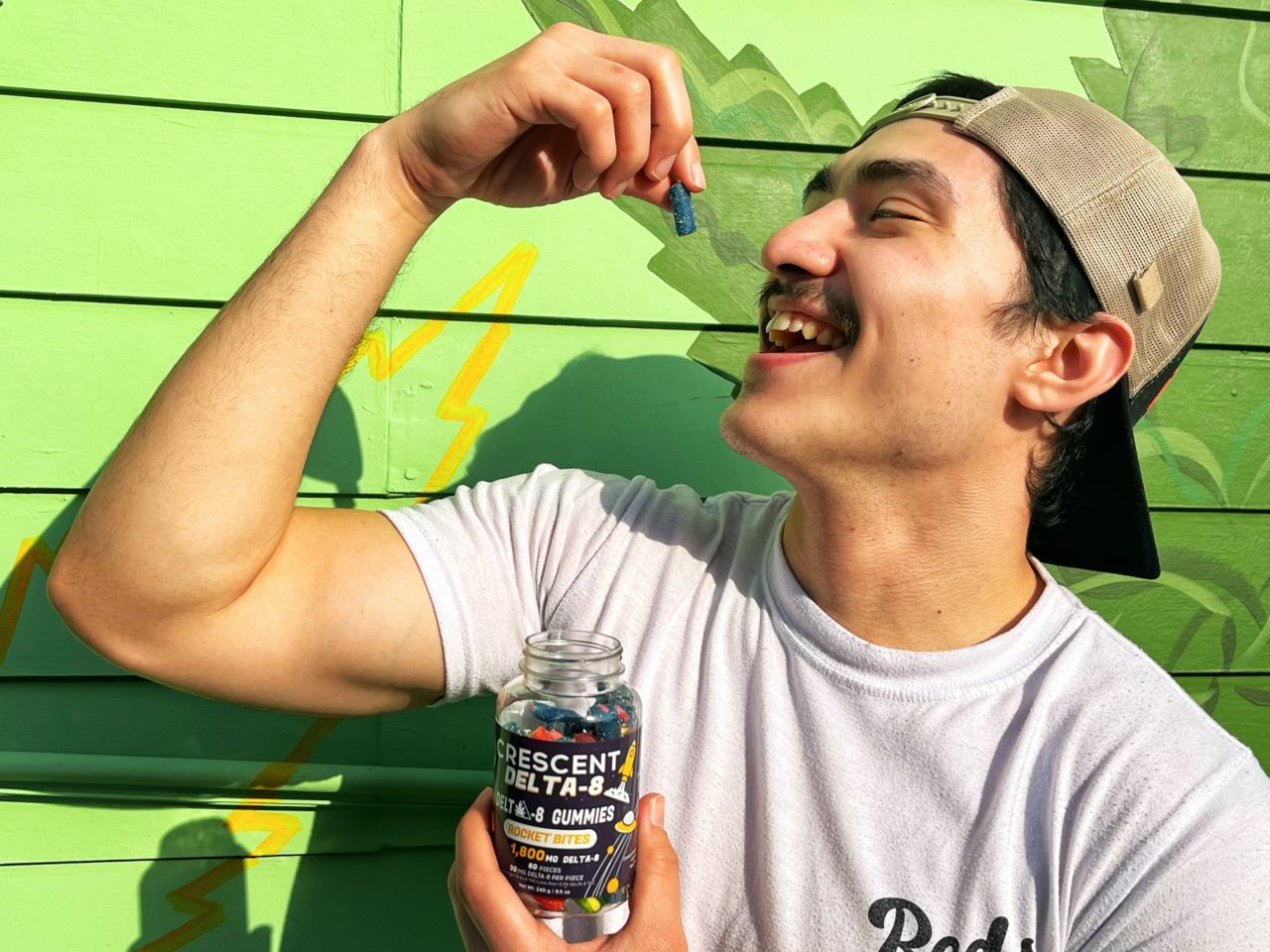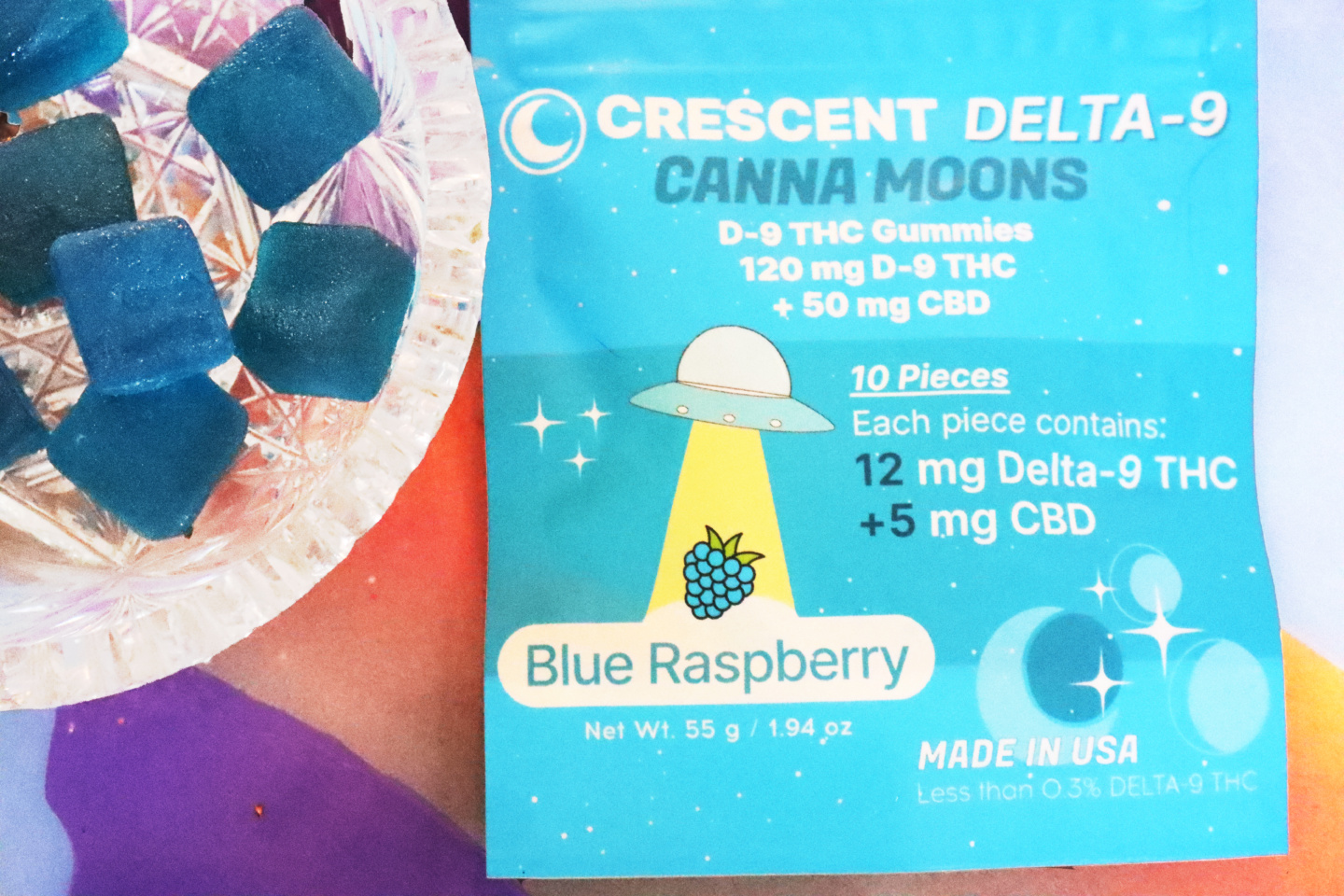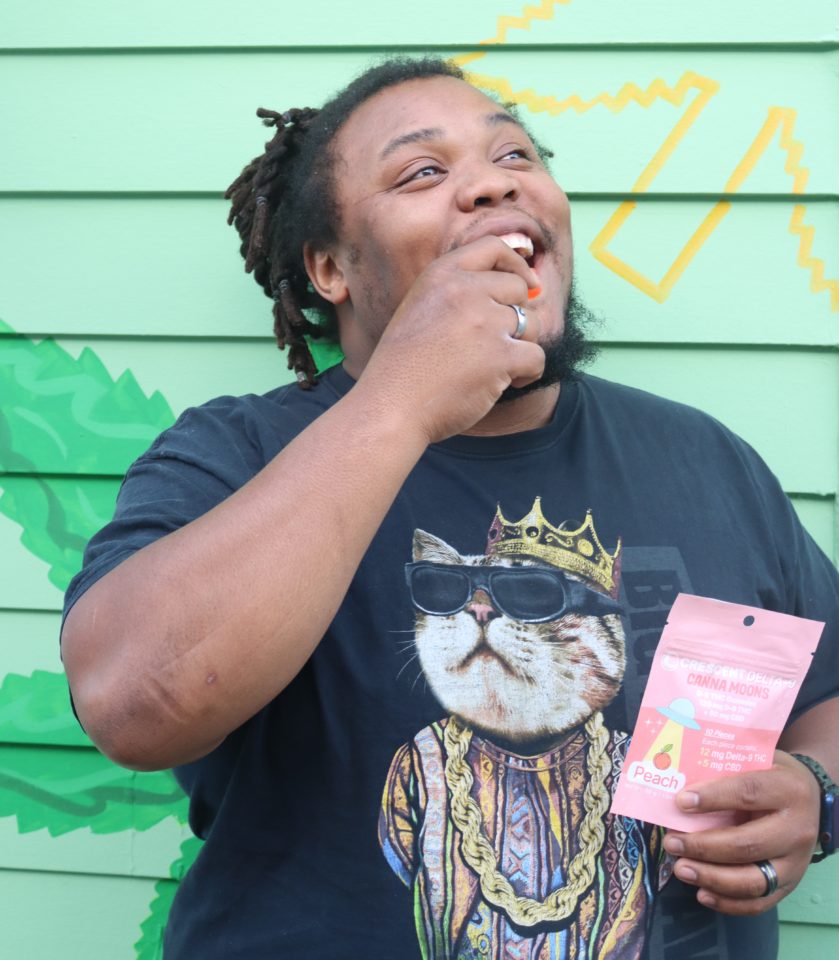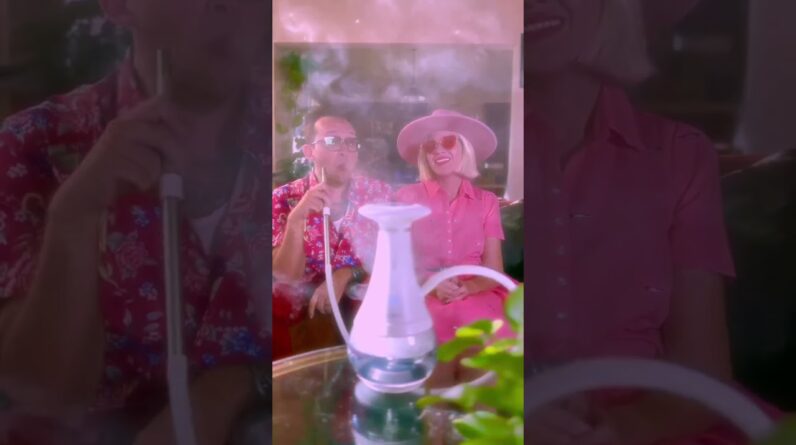Signs bearing “Legal THC” have been popping up in the windows of vape shops, gas stations, and wellness centers around the country. For many, especially those in states where marijuana continues to be illegal, this has caused confusion. After all, if marijuana is illegal federally, and in a particular state, how are stores openly selling THC?
The confusion stems from the misconception that THC per se is illegal. It’s not. Marijuana is illegal, federally and in some states. On the other hand, THC in hemp is lawful. When THC is derived from hemp rather than from marijuana, it is federally legal for adults to buy across the country—without a prescription.
Hemp, Marijuana, and the 2018 Farm Bill
As cannabis business lawyer Rod Kight explains, “The terms ‘hemp’ and ‘marijuana’ are mostly misleading. Both are the plant Cannabis sativa and, in fact, are biologically indistinct from each other. The sole difference between them is their respective concentrations of tetrahydrocannabinol, commonly known as THC.” By definition, hemp can contain no more than 0.3% of Delta-9 THC.
The 0.3% rule first appeared in the Agricultural Act of 2014 (the “2014 Farm Bill”), which allowed states to create pilot programs to research industrial hemp. The Agriculture Improvement Act of 2018 (the “2018 Farm Bill”) kept the 0.3% rule and broadly legalized hemp throughout the U.S., ushering in the current market for commercial hemp products, including hemp derivatives like CBD, CBG, and the various forms of THC.
Additionally, the 2018 Farm Bill created a large opening in the cannabis industry for businesses to develop and market hemp products with high levels of cannabinoids other than CBD. This includes products with enough THC to cause psychoactive effects, while still complying with the federal limit of 0.3% Delta-9 THC by weight.
Delta-9 THC versus “The Deltas”
The best-known form of THC is Delta-9 THC, the most abundant cannabinoid in marijuana and the reason that marijuana gets you high.
But Delta-9 THC is not the only form of THC. Both marijuana and hemp contain other forms of THC as well, like Delta-8 THC and Delta-10 THC—albeit only in very small amounts.
Since only trace levels of THC are present in hemp, they were not a factor in the hemp market until the Farm Bill opened the door to innovations in extraction and processing. Manufacturers are now able to work with hemp-derived THC in much higher concentrations.

Delta-8 THC, which has effects similar to, but less potent than, the effects of Delta-9 THC, was the first hemp-derived THC to gain traction in the market. But Delta-9 THC has quickly become the most popular form of hemp-derived THC, since it produces effects that are identical to those of marijuana.
Are all hemp-derived forms of THC legal?
While the federal legality of hemp-derived THC has been challenged several times since 2018, the Farm Bill’s definition of hemp has so far been affirmed.
In 2021, the Drug Enforcement Agency stated that cannabinoids extracted from cannabis with a Delta-9 THC concentration of “not more than 0.3 percent on a dry weight basis meet the definition of ‘hemp’ and thus are not controlled under the CSA [Controlled Substances Act].”
By legal definition, hemp products are products containing less than 0.3% Delta-9 THC. Because of this, hemp products can contain any quantity of Delta-8 THC and still be federally legal.
In a unanimous ruling in 2022, a California Federal Appeals Court ruled that the Farm Bill “is silent with regard to delta-8 THC” and that “regardless of the wisdom of legalizing delta-8 THC products, this Court will not substitute its own policy judgment for that of Congress.”
State laws
Although federal law seems clear for the moment, some state governments have imposed restrictions on hemp-derived THC.
Since Delta-9 THC is explicitly part of the definition of hemp, it would be difficult to restrict hemp-derived Delta-9 products without also restricting full-spectrum CBD products in the same way.

But states can restrict or ban forms of THC like Delta-8, Delta-10, and THC-O without also challenging the status of full-spectrum CBD products that contain trace amounts of Delta-9 THC. Unlike Delta-9 THC, these other forms of THC aren’t directly tied to the definition of hemp.
State laws are changing all the time. Moving forward, expect to see more states banning various forms of THC, even as they allow hemp-derived Delta-9 THC products to remain on the market with regulations around potency, testing, and labeling.
What’s the difference between hemp-derived THC and marijuana-derived THC?
Aside from the source, hemp-derived Delta-9 THC and marijuana-derived Delta-9 THC don’t differ at all. Chemically, they are indistinguishable.
Do hemp-derived THC products get you high?
Because hemp-derived THC is identical to marijuana-derived THC, it has the same psychoactive effects and wellness benefits.
Of course, products, strains, and complementary ingredients can vary. But all other things being equal, a gummy with 10 mg of hemp-derived Delta-9 THC has the same effect as a gummy with 10 mg of marijuana-derived Delta-9 THC.

Where can you get hemp-derived THC?
Because hemp-derived THC edibles are federally legal, you can order them online from just about anywhere in the country.
For adult consumers in states where marijuana remains illegal, this development has been revolutionary because hemp-derived THC products are far more accessible. You don’t need a prescription to order them.
Moreover, they are usually less expensive than the products available at marijuana dispensaries and are usually not subject to the same excise taxes. In Washington state, for example, customers pay a 37% excise tax on recreational marijuana products.
What to look for in hemp-derived THC products
When states legalize marijuana, either medicinally or recreationally, they set up significant regulations. While a few states have enacted regulations around hemp-derived products to ensure their quality and safety, most states have not.
As a result, some bad actors have taken advantage of the lack of regulation with hemp products that aren’t thoroughly tested or have dishonest labeling.
Before purchasing hemp-derived THC products, it’s a good idea to make sure that the company selling them has full-panel certificates of analysis posted on their website. These certificates should report cannabinoid content that is accurately reflected in the product label and should report that the product has zero harmful contaminants.

The Louisiana Example
Another way to know that you’re getting a high-quality and legal THC product is to purchase it from a Louisiana hemp company. Louisiana has adopted the most robust requirements for registering consumable hemp products in the country. The requirements pertain to testing, ingredients, packaging, marketing, and a 21-year age limit for intoxicating hemp products, among other considerations.
In order for hemp-derived THC products to be sold in Louisiana, they must meet all of these requirements and be approved by the Louisiana Department of Health (LDH). You can see the full list of products approved for sale in the state of Louisiana at the LDH website.
Louisiana currently allows all forms of hemp-derived THC as long as the finished product contains less than 0.3% Delta-9 THC. Going a step further than federal law, the state also caps the percentage of total THC at 1%, one of several limitations intended to keep consumers safe while allowing the new market for hemp-derived THC products to grow.
Adults across the country can order federally legal THC gummies registered with the Louisiana Department of Health. Order a free THC gummies sample here.
The post Legal THC: Your Questions Answered appeared first on High Times.
Source: https://cannabisworld.biz/2022/08/19/legal-thc-your-questions-answered/





